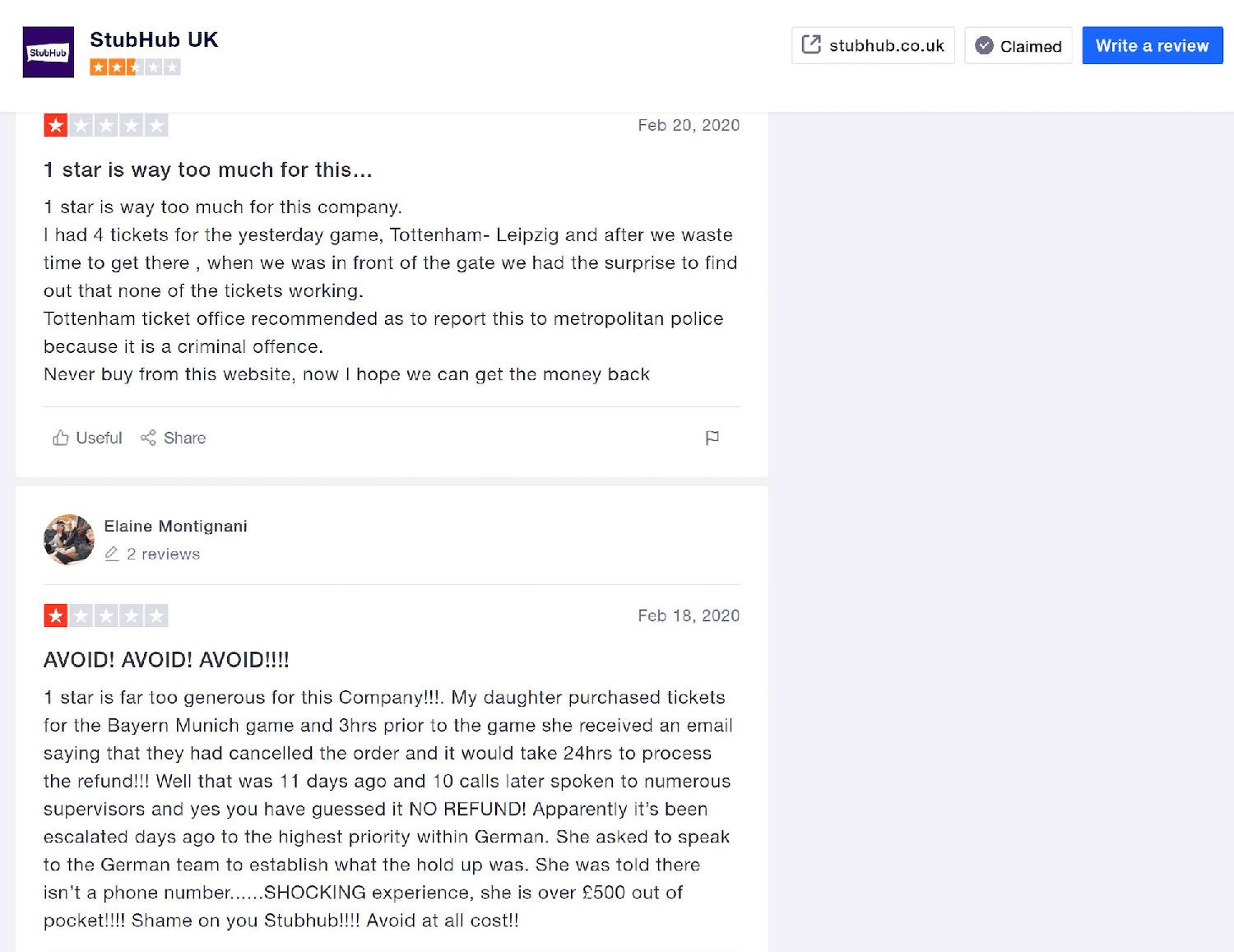The UK’s Advertising Standards Authority has shot down StubHub’s always-fanciful claim to be able to promise ‘Guaranteed Genuine Tickets’ on their controversial secondary-market platform.
The ASA’s ruling this week shows that, in defending themselves, StubHub made the ludicrous claim that their customers would ‘understand “genuine” to mean that tickets were not fake or fraudulent, but would not assume that they were definitely valid for entry.’ [our emphasis]
Clearly that was one contortion too many for the ASA, who ruled that within the UK StubHub would never be able to use the claim: ‘“Guaranteed genuine tickets” where there was a risk that buyers might not be able to gain entry into an event’, according to the regulator.Risks to rightsholders
Obviously, from the perspective of DAIMANI and many of our event partners, there is a very considerable risk of that exact thing happening which was why it was laughable StubHub made the claim in the first place.
If you take a snapshot of the events on the StubHub platform the vast majority of them will have primary-ticket terms and conditions that explicitly do not allow tickets to be bought and then resold through secondary channels like StubHub. Many events will also explicitly print on their tickets that they reserve the right to deny entry to those who have purchased through companies like StubHub.
And fast-moving algorithmic technology changes make it easier and easier for rightsholders to trawl the internet and identify which primary purchasers are using the secondary market to flip their tickets for often ludicrous profit.
The ASA ruling
This week’s ruling was triggered by a complaint from the FanFair Alliance, a pressure group made up of music industry figures that have, for years, criticised the price-gouging, lack of transparency and shocking customer service endemic to secondary ticket markets.
That brute ugliness was laid bare for many to see last month when a married couple, also professional online ticket touts, were jailed in the UK for a seven-year operation that netted them more than GBP7m in profits. The court was told the key to their ill-gotten gains was the power of the selling platforms of companies like StubHub.The FFA’s complaint to the ASA related to a tennis-themed StubHub advert which featured the text “THAT KNEE SLIDE ALONG THE PLATFORM MOMENT”.
Smaller text underneath stated, according to the ASA: ‘“Guaranteed genuine tickets to the match can do that”. Below the text was a large image of a woman shouting in excitement with her arms spread out against a backdrop of the StubHub logo. Text at the bottom right-hand corner stated “That StubHub Feeling” followed by StubHub’s website address.’
The ASA ruling means that StubHub is now 0 and 3 against the ASA in just the first three months of 2020.
In January, the ASA found that StubHub marketing breached industry codes covering Misleading Advertising, Qualifications, and Guarantees and After-sales Service. They were told not to use the claim ‘Every order is 100% guaranteed’ unless the claim was prominently qualified to make clear that rescheduled events were not included in the guarantee.And then earlier this month, the ASA initiated their own investigation into the way that pricing appears on the StubHub site, specifically the controversial add-ons StubHub charges for their own fees and delivery costs. The ASA found that, depending on how the StubHub page was set up, these additional charges were not revealed until the third page of the customer journey.
This is the complaint related to the presentation of ticket pricing on the StubHub website back in July 2017.The ASA ruling noted:
‘the advertised £52.99 ticket price did not include the service and delivery fees. The [advertising industry’s] rules on misleading advertising and pricing required that, to avoid misleading consumers, quoted prices must include non-optional taxes and fees that applied to all or most buyers and should also state the applicable delivery fee; the only exception was when those fees could not be calculated in advance.’
The ASA said StubHub’s fees and delivery costs were all easily calculated beforehand and therefore no exeption should be made. StubHub was told ‘to ensure they made clear the total ticket price including the service fee and made clear the delivery fee as soon as ticket prices were quoted.’
As seen on Stubhub's Trustpilot site the pain points for clients go beyond just the hidden delivery costs and price hikes:
'Stubagogo'
In fact 2020 may prove something of an annus miserablis for StubHub. At the end of last year, amidst much fanfare, StubHub was sold by owners eBay to the even-more-ethically-challenged global giant of ticket reselling, Viagogo.
The USD4.05 billion deal reunites Eric Baker, the Harvard and Stanford educated CEO of Viagogo, with StubHub, which he cofounded in 2000 and sold to eBay seven years later for USD310 million. Baker founded Viagogo in 2006.
Although the purchase is still subject to regulatory approval the creation of ‘Stubagogo’ seems to moving forward at an operational level.
Back in January, in other words well before the coronavirus was wreaking global havoc with live events, the JohnWallStreet section of Sports Illustrated was reporting:‘A pair of well-connected ticketing industry insiders tell JohnWallStreet that Stubhub has notified at least 100 employees that they are being let go. Speculation exists that Viagogo is behind the layoff orders.
‘One source suggested "Eric Baker and co. have likely realized they're paying +/- $1 billion too much (they paid 25x EBITDA) and now need to slash salaries to make the debits and credits more palatable." While the deal is expected to close, it may not happen as ‘swiftly’ as one might expect an all-cash pact to; we've heard that Viagogo has been shopping minority stakes.’


